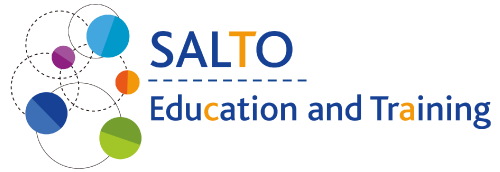A New Vision for European Cooperation
Main Info
TCA Description
The Brexit Scenario, the war in Ukraine as well as recent
developments in internationalization in several countries have shown that the
perception of mutual exchange and mobility as well as joint project cooperation
within Europe currently undergo substantive changes. Longstanding cooperation partners
and traditional mobility flows have to be complemented with new partners and a
new vision about European cooperation.
A huge potential for this lies in the cooperation with Southeast European partners. In terms of exploring new concepts of mobility cooperation, not only in- and outbound flows will be taken into consideration but also intra-regional flows as well as blended mobility formats. By figuring out new ways and types of cooperation with Southeast European countries, linguistic, socioeconomic and political difficulties, which impeded the progress of fostering intra-regional cooperation and created obstacles for Southeast European students to go abroad so far will be addressed. By taking into account already existing partnerships between Southeast European countries in the field of higher education (mobility and project cooperation) we make use of synergies and pre-existing knowledge in this field.
This contact seminar would like to give interested
stakeholders from European higher education institutions the chance to explore
new ways, new topics and new forms of cooperation with Southeastern European countries.
First, the focus will lie on creating an enhanced
understanding of potential problems, which impeded the fostering of international
and intra-regional partnerships so far.
Second, networking will be on the agenda to help
participants to explore marketing opportunities for the 'recruitment' of Southeast
European partners and to discern certain potential fields of cooperation for
the establishment of new forms of partnerships and projects.
The target group is interested staff from European higher education institutions who would like to expand their cooperation with and between Southeast European countries:
- staff from International Offices/ internationalization officers
- Erasmus+ coordinators for mobility KA1
- project coordinators (from faculties) of Erasmus+ KA2 or KA3 as well as potential applicants/ newcomers
Partners and participants
- min. 1 newcomer: potential applicants for project coordination of Erasmus+ KA2 or KA3, eager to learn more
- min. 1 experienced and engaged HEI staff: staff from International Offices/ internationalization officers; Erasmus+ coordinators for mobility KA1; project coordinators (from faculties) of Erasmus+ KA2 or KA3
- max. 1 student with exchange experience in one of the following countries: Albania,
Austria, Bulgaria, Bosnia and Herzegovina, Croatia, Kosovo, Montenegro, Republic
of North Macedonia, Romania, Serbia, Slovenia
Please note that students are expected to take an active role (presenting and engaging in discussions) and therefore need to be fluent in English.
Pending booked places
Accepted places


